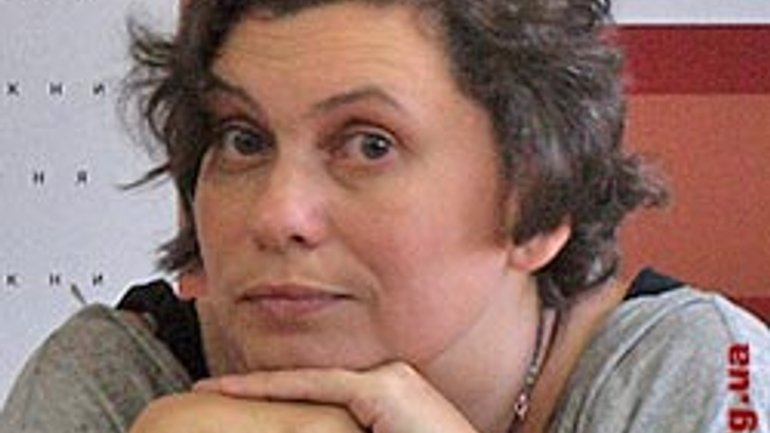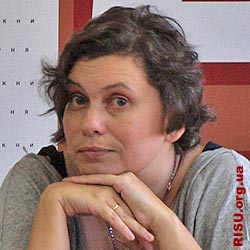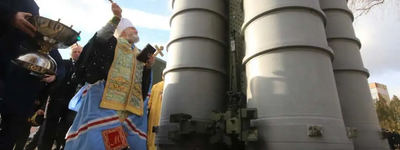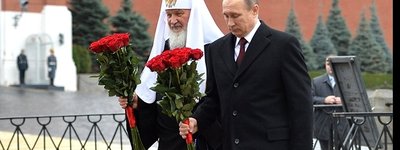Relations Concerning the Statutes: Does the ‘Ukrainian Question’ Exist in the Russian Orthodox Church?

 It seems that for the last two or three years the biggest Ukrainian Church – the Ukrainian Orthodox Church-Moscow Patriarchate (UOC) – has been sitting on a powder keg. Once a more or less serious internal church meeting or any other event is on the horizon, increasingly dire assumptions are expressed in the media and on the air. And not without reason – at least starting from the Local Council of the Russian Orthodox Church (ROC) in 2009, the hierarchy of the ROC and the UOC have kept the viewer in suspense: the fate of the Statute, government and the status of the UOC, the fate and health of the Primate, the distribution of power among the highest hierarchs, the potential locum tenens – all these make up just a partial list of recent hot topics.
It seems that for the last two or three years the biggest Ukrainian Church – the Ukrainian Orthodox Church-Moscow Patriarchate (UOC) – has been sitting on a powder keg. Once a more or less serious internal church meeting or any other event is on the horizon, increasingly dire assumptions are expressed in the media and on the air. And not without reason – at least starting from the Local Council of the Russian Orthodox Church (ROC) in 2009, the hierarchy of the ROC and the UOC have kept the viewer in suspense: the fate of the Statute, government and the status of the UOC, the fate and health of the Primate, the distribution of power among the highest hierarchs, the potential locum tenens – all these make up just a partial list of recent hot topics.
Today’s Bishops’ Council of the ROC is not an exception. On the eve of its meeting, various “sources” – those close to Patriarch Filaret, the Moscow Patriarchate, the presidential administration, and possibly even to the Heavenly Office – told the Ukrainian public about Patriarch Kirill’s intention to reform the UOC administrative. According to the plans of the Patriarch of Moscow, Ukraine will be divided into metropolitanates on the basis of the eparches that exist now (even the exact number of metropolitanates was named – 12). Possibly the Synod will be reformed to include only the leaders of the metropolitanates. And also – the most difficult and most painful of them all – the power of the “formatted” Synod will be expanded so much that the position of the UOC Primate will become purely for show. As for the subordination of the metropolitanates, designation of metropolitans, and so on, the question is incredibly confusing, but it seems that Patriarch of Moscow will be directly managing everything.
According to Ukrainian reality, the picture is incredible and somewhat, sorry to say, paranoid. But what do they in the Moscow Patriarchate really know about reality and about the Ukrainian reality in particular? Furthermore, recently such incredible things and absurd scenarios have been taking place that words can’t even describe them. Well, just as in Russia.
It could be possible to calm the especially impressionable reader by explaining why similar scenarios in Ukraine are no pasaran. We can start with how “Ukraine is not Russia”: in Russia people were displeased with Patriarch Kirill’s reforms, especially at the parish level; in Ukraine the dissatisfaction can result in the exit of the next series of parishes from the ROC, especially in the Right Bank regions that are already “problematic.” Unlike Russia, Ukraine has an “alternative church” and every year looks less like a terror. And the current Ukrainian authorities are not interested in strengthening the position of the Moscow Patriarchate (and everything connected to Moscow) in Ukraine. Embracing with the patriarch of the pre-election period is one thing, but to surrender territory and interests is another. And the matter may not be a noble impulse to “protect one’s Church,” but an understanding that it is always easier to reach an agreement with one’s own than with the “Moscow residents” – in politics often it is actions not motives that are important. It’s no wonder that the recent initiatives to strengthen the independence of the UOC are increasingly coming from the Presidential Administration. And Ukrainian hierarchs came to this council with strict instructions not to allow the independence of the UOC to be suppressed.
It is easy to understand Patriarch Kirill’s desire to reform the Ukrainian Orthodox Church. First, as reform is happening across the Russian Orthodox Church, there would be no reason to leave out the UOC, for this would mean the UOC is outside the ROC. Second, the UOC doesn’t have so many bishops, and as a result of the policy of fragmenting the eparchies, there can be more of them – there is a great temptation to gather all these hierarchs under the authority of the metropolitan, who would determine the policies of the metropolitanate, and the bishops would only engage in practical matters. All that would be left would be to make sure that “random” people don’t become metropolitans.
There are, though, a few words in defense of the reforms. The central church authorities usually do not control the situation in the eparchies, and the eparchial authorities the situation in the parishes. The name of the Church is used as a sort of brand, which is used by franchises, where things happen that are incommensurable with the sacred status of the Church, which casts a shadow on the Church as a whole. Maybe strengthening the “verticals” could change the situation. But, nevertheless, Patriarch Kirill’s reform causes suspicion. First, due to the usual suspicion of everything that comes from Moscow, and second, this reform suppresses the church people, not only “church feudal hierarchs.”
For example, one of the consequences of this reform was the expropriation of property form the community. In this case, the transfer of a parish to a different jurisdiction remains possible, but with nothing – in the first place, without the church building. Even if it was built with the money or by the hands of the parishioners, it remains the property of the eparchy. Therefore, conflicts resulting from transfers of parishes, which already partially lost their courage, can gain new impetus.
But property losses are definitely not all, and not the most important. The main thing is the actual withdrawal of church people from the management of the Church. From the parochial to the church-wide level – the reform jeopardizes the credibility of the Local Council.
Actually, it was put in jeopardy a long time ago – even at the jubilee council of the ROC in 2000, during which were passed (they say from the current patriarch, the then Metropolitan Kirill) unusual convocations of the national councils. I do not know about administrative reform in the UOC, but the inclusion in the Statute of the ROC of points on the transfer of supreme power to the Bishops’ Council from the local one has a chance to be resolved at the upcoming Bishops’ Council. At least because without this point in the Statute, the Bishops’ Council will not have the power to resolve other issues included on the agenda. And, yes, this includes the “Ukrainian question,” no matter how it may be formulated.
The head of the press service of the Ukrainian Orthodox Church, Fr. Heorhij Kovalenko, argues that no “Ukrainian question” exists, and that no one will discuss it at this council. The Ukrainian delegation, however, will likely still be forced to say something about “bringing the UOC Statute in accordance with the ROC Statute.” At least because the ROC Statute is being preparing for some innovation – including in administrative reform – and it will give work to the Ukrainian “coordinating” commission. Moreover, this time the Ukrainian delegation will be headed not by Metropolitan Volodymyr of Kyiv, but his “plenipotentiary,” the Vicar of the Kyiv Metropolitanate Metropolitan Antoniy.
This is probably really alarming, regardless of whether some “Ukrainian question” will be considered or not. This could mean that the health of Metropolitan Volodymyr does not allow him to fully carry out the work of the Primate. And perhaps dire predictions that soon Metropolitan Volodymyr will ask for retirement – perhaps even at this council – will come true. And then finally the question about the locum tenens will be cleared up. That which was not done at the Jubilee Council – on its territory, at home, where the walls help – can be done in Moscow, where the walls will help someone else.
Well, maybe it is right and historically inevitable – the time of the Titans has passed, as has the time of national councils and certain “church democracy.” It’s time for reforms, centralization, effective management, and, therefore, managers. The transfer of more and more powers to all sorts of “supervisory boards” and so on is just a sign of the times, “the era of corporations.” All vital issues for the church are resolved not by the badly structured “viche” of national councils, but by the “Board of Directors,” sorry, the Bishops’ Council. In this situation it is no longer important how – and if at all – the “Ukrainian question” will be formulated at this and subsequent meetings. Perhaps Fr. Kovalenko told the truth – no such question exists. A corporation has no “self-ruled” departments – it is simply beyond their conceptual field. They have only branches. Therefore, the chance to “clarify” the canonical status, lost in 2009 at the Local Council, has passed long ago. Very long ago. Even if there will be no administrative reforms in the UOC.










